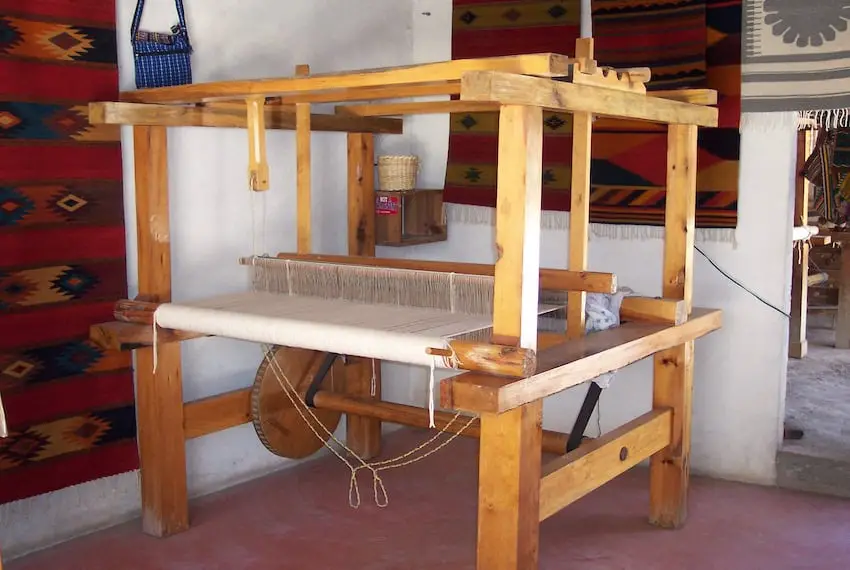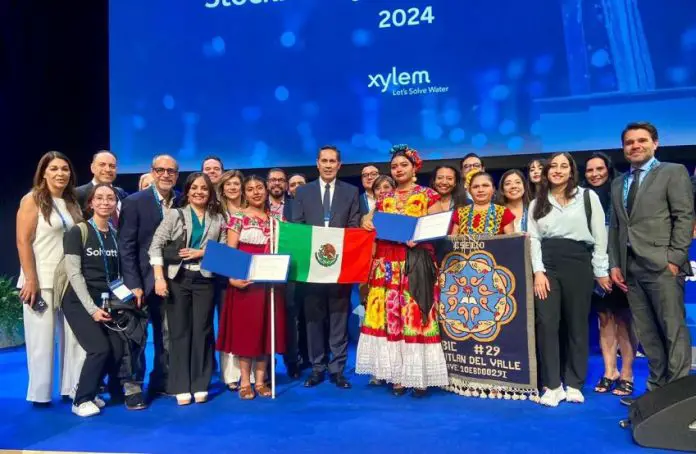Two students from Oaxaca won the diploma of excellence at the Stockholm Junior Water Prize in Sweden during the world’s leading water conference, World Water Week in Stockholm.
Shanni Valeria Mora, 16, and Rosa Mendoza Sosa, 17, designed a filtration system to purify wastewater from textile dyeing and reuse it in vegetable farming in their community of Teotitlán del Valle, Oaxaca. Their invention seeks to promote sustainability, preserve the entity’s cultural traditions and help it transition towards a circular economy.
¡La espera terminó! ⌚
Nuestras representantes mexicanas, Shanni Mora y Rosa Mendoza ya se encuentran en Estocolmo, #Suecia para el #StockholmJuniorWaterPrize 2024.💧🫶🏻
Estamos seguros que desempeñarán un gran papel y pondrán el nombre de #México en lo más alto. 🇲🇽💧👏🏻 pic.twitter.com/QAJjx30I2s
— Premio Nacional Juvenil del Agua (@premiojuv_agua) August 25, 2024
“Shanni and Rosa are a source of pride for Mexico,” said Jorge Arriaga, executive coordinator of the UNAM Water Network and the Regional Center for Water Security (CERSHI), under the auspices of UNESCO. “They not only represent young people, but also women, Indigenous populations and, above all, the future of science with social significance.”
Their project was chosen from over 30 finalists due to its positive impact on environmental and social issues.
Teotitlán del Valle’s main economic activity is textile production, with roughly 70% of the town’s population involved in this artisanal industry. Noticing the environmental impact of dyeing practices and the threat it poses to local water bodies and soil, Shanni and Valeria found a solution that fosters a deeper connection to their community’s textile heritage.
“In our village, textiles are not just products; they are a testament to our traditions, crafted with techniques passed down through generations,” the students said in a statement.

The homemade filters are designed for natural and synthetic dyes. In their experiment, the filtered water was later used for the germination of spinach and radish seeds, with further experimentation planned for other vegetables.
“The objective of this project is to establish a sustainable system that enhances family economies and nutrition, contributes to environmental conservation, and provides a viable water reuse strategy for the community,” they said. “By reclaiming and reusing water, we can mitigate pollution while preserving our cultural heritage and supporting our local economy,” the students concluded.
The Stockholm International Youth Water Prize is the most prestigious accolade for student research projects addressing water challenges worldwide. It is organized by the Stockholm International Water Institute (SIWI), a non-profit institute with a wide range of expertise in water governance.
With reports from El Financiero
